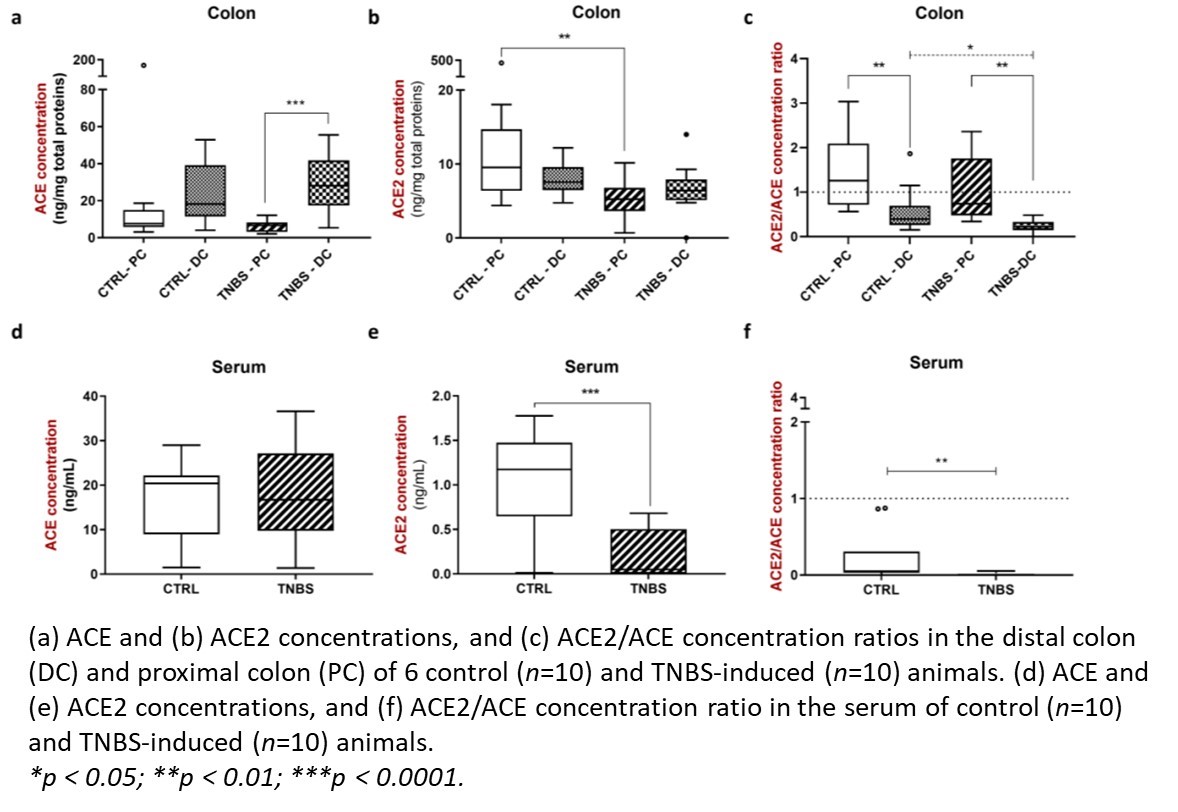
The present technology describes the use of two enzymes (angiotensin-converting enzyme and/or angiotensin-converting enzyme 2) as fecal biomarkers, using them or a composite of both to assess, diagnose or monitor inflammatory bowel disease, as well as a response to treatment and intestinal health. The invention includes the sequencing of the fecal enzymes, the production and use of target antibodies against them, and a kit based on the detection of those enzymes with the antibodies.
Nowadays, the diagnosis and monitoring of inflammatory bowel disease rely on patient interviews, routine clinical analysis and invasive procedures, like colonoscopies, biopsies and blood samples. Also, dysbiosis is emerging as a health imbalance. Recently, fecal biomarkers are emerging as a more convenient alternative.
- Non-invasive approach;
- Easy sample collection;
- Suitability across age ranges and health condition of the individual;
- Comfort of the patient;
- More reliable results (as stools are in direct contact with the intestinal mucosa, they are more prone to reflect the health/disease status of the intestinal mucosa/wall than a blood sample)
A kit for non-invasive fecal biomarker of inflammatory bowel disease and other pathophysiological conditions and for monitoring intestinal health.






